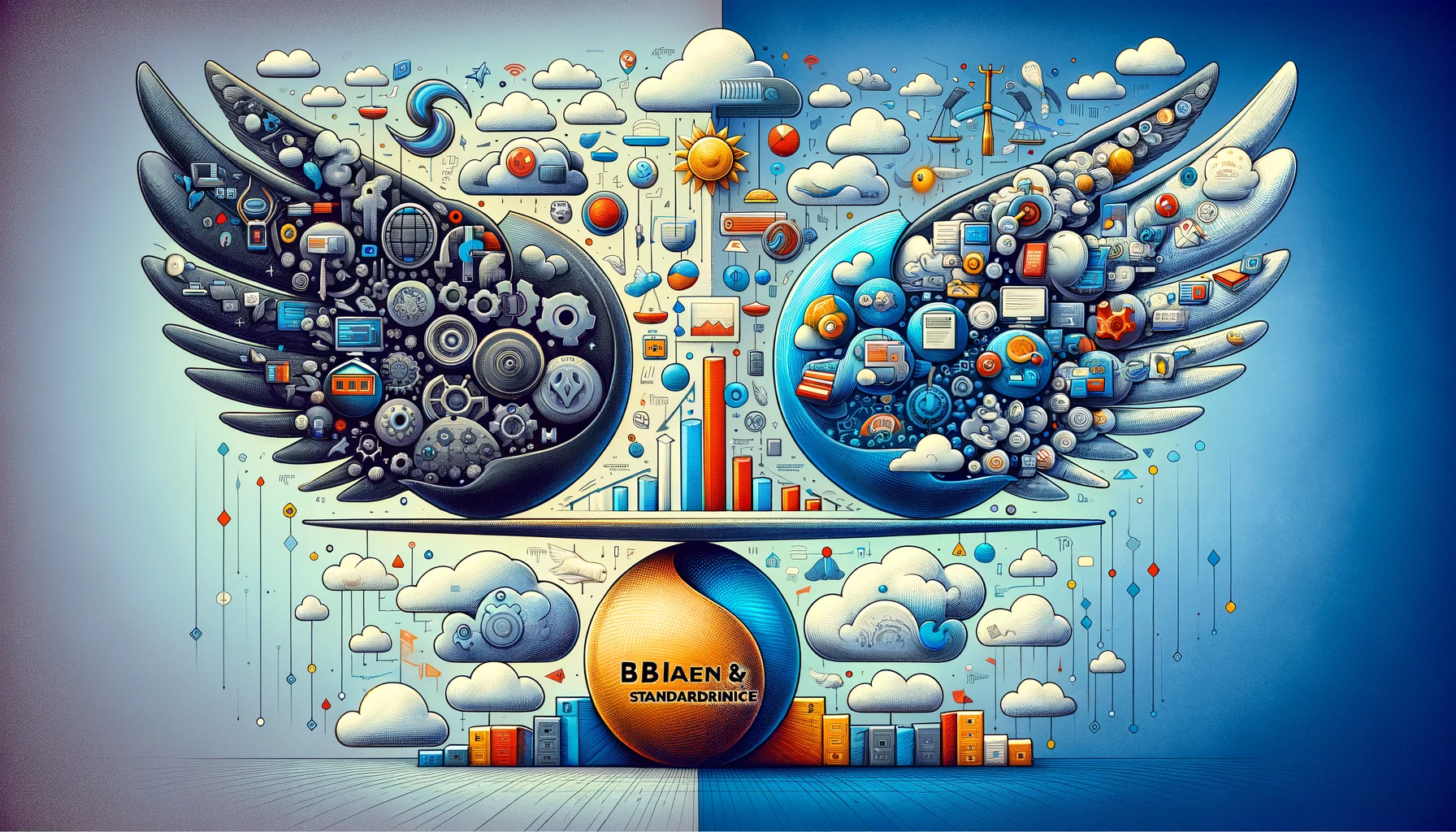Customization vs. Standardization: Finding the Balance with BaaS in Enterprise Development, Featuring StormAPI
In the rapidly evolving world of enterprise software development, businesses are constantly navigating the fine line between customization and standardization. Customization offers tailored solutions that closely fit specific business needs, while standardization promises efficiency, scalability, and lower costs. Backend as a Service (BaaS) platforms, such as StormAPI, play a pivotal role in striking the right balance between these two paradigms. This article delves into the technical intricacies of leveraging BaaS to harmonize customization and standardization in enterprise development, using StormAPI as a prime example.
The Dilemma: Customization vs. Standardization
The choice between customization and standardization in software development is influenced by various factors including business requirements, budget constraints, and the need for scalability. Customization provides a direct path to meeting unique business needs, enhancing user experience, and gaining competitive advantage. However, it can be resource-intensive, slow to deploy, and challenging to maintain. Standardization, on the other hand, leverages common patterns and platforms to speed up development, reduce costs, and simplify maintenance, but it may not fully address specific business requirements.
StormAPI: Bridging the Gap
StormAPI, a robust BaaS platform, offers a unique solution to this dilemma by providing a standardized backend infrastructure that supports extensive customization. This approach enables enterprises to benefit from the best of both worlds. Here’s how StormAPI achieves this balance:
Standardized Core Services with Extensive Customization Options
StormAPI provides a suite of core backend services, including authentication, database management, serverless functions, and real-time data synchronization. These services are standardized, offering reliability, scalability, and ease of use out of the box. However, they are also designed to be highly customizable. For example, serverless functions on StormAPI can be tailored to execute specific business logic, while the real-time database can be structured to meet unique data requirements.
API-first Approach Enhancing Flexibility
An API-first architecture is central to StormAPI, facilitating the integration of standardized backend services into customized frontend applications. This approach offers the flexibility to develop unique user interfaces and experiences, while relying on a solid, standardized backend. The extensive API documentation and SDKs provided by StormAPI further simplify this integration process, making it easier for developers to customize applications without compromising on the efficiency and reliability offered by standardization.
Scalability That Supports Customized Workflows
Scalability is a crucial consideration in the customization vs. standardization debate. Custom solutions often face scalability challenges as they grow. StormAPI addresses this by ensuring that both its standardized services and any customizations built on top of them can scale seamlessly. This is achieved through cloud-native technologies and auto-scaling capabilities, ensuring that customized applications can handle growth without performance degradation.
Security and Compliance Without Compromise
Customized solutions must not only meet unique business needs but also adhere to security and compliance standards. StormAPI provides a secure, compliant backend infrastructure that supports customization without compromising on these critical aspects. Features such as end-to-end encryption, role-based access control, and compliance with standards like GDPR are built into the platform, providing a secure foundation for developing customized applications.
Real-world Application: A Customized CRM Solution with StormAPI
Consider an enterprise seeking to develop a customized Customer Relationship Management (CRM) solution tailored to its unique sales processes. Using StormAPI, the enterprise can leverage standardized authentication services for secure user access, real-time databases for instant customer data updates, and serverless functions to implement custom business logic for sales automation and analytics. The API-first approach allows seamless integration with existing sales and marketing tools, ensuring a holistic solution that fits precisely within the enterprise’s ecosystem. The result is a customized CRM solution that benefits from the reliability, scalability, and security of a standardized BaaS platform.
In the context of enterprise software development, the debate between customization and standardization is nuanced, with each approach offering distinct advantages and challenges. BaaS platforms like StormAPI present a compelling middle ground, providing standardized backend services that support extensive customization. This balance enables enterprises to develop tailored solutions that meet specific business needs while benefiting from the efficiency, scalability, and security inherent in standardized platforms. As businesses continue to navigate the complexities of digital transformation, the role of BaaS in achieving the optimal balance between customization and standardization will undoubtedly become increasingly significant, positioning platforms like StormAPI at the forefront of this evolutionary journey.


Leave a Reply